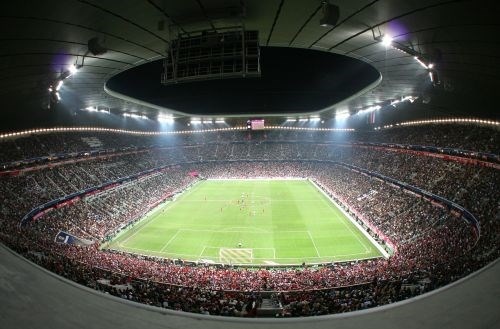Play the Game 2013: New insight into the legacy of Brazil’s and Russia’s mega-events

15.10.2013
Large sporting events such as the Olympics and the FIFA and UEFA championships are prestigious events that an increasing number of cities and nations are eager to host.
In the latest years, new players on the international market for large sporting events have emerged showing that there are geopolitical interests at stake.
Emerging economies are in a fierce competition with established event hosting nations to secure the largest sporting events.
At Play the Game 2013, the political aspects of hosting mega-events will be largely debated – from Brazil’s public protests directed at public expenditures on the 2014 FIFA World Cup and 2016 Olympics to Russia, where human rights organisations and other NGOs are questioning the way the 2014 Sochi Games are being prepared bringing huge costs, transforming the local area and putting human rights at stake.
To tell these stories, Play the Game has gathered a range of independent experts from Brazil including journalist Erich Beting, professor Katia Rubio and researcher and blogger Christopher Gaffney.
From the public side, the Brazilian fight against cost overruns in the World Cup and the Olympics will be described by a leading official from the state auditor’s agency CGU Brenno d'Aguiar de Souza.
And a few days ago, the Local Organising Committee of the FIFA World Cup 2014 confirmed it will also raise its voice in the debate.
To discuss the Sochi 2014 Games and the political aspects of hosting mega-events, Elena Panfilova, head of Transparency International Russia, will be joining Alexey Konov from the Anti-Corruption Division of Russia’s G20 Expert Council and American professor Paul A. Goble among others.
Legacy for the people or the power holders?
Often mega-events are promoted to the public community on promises of great legacy in terms of tourism boost, improved infrastructure, growth of grassroots sport participation and global branding.
But are such promises often no more than wishful thinking made up to justify the investments as many studies show that it is often very hard to prove concrete social and economic effects?
For example The World Stadium Index report developed by Play the Game shows that many stadiums have a hard time filling their stands after the event they were built for.
Play the Game 2013 presents a line of expert speakers on the subject of the legacies of mega-events who will be discussing if a few weeks of sports festivities can be transformed into a long-lasting benefit for the organising city or country.
The mega-event sessions at Play the Game 2013 will run on Wednesday and Thursday.
Read more about Play the Game 2013 here





